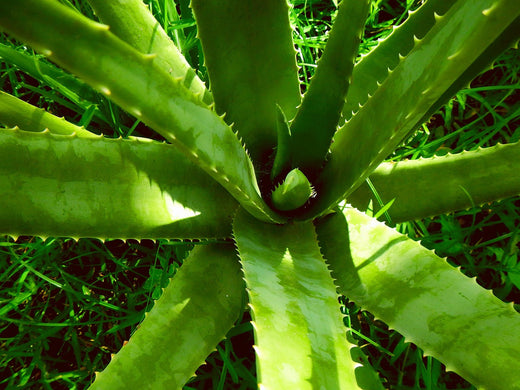Aloe Vera, renowned for its medicinal and cosmetic applications, also offers significant environmental benefits. Its resilience and unique properties make it a valuable asset in promoting sustainability and ecological balance.
Water Conservation
Aloe Vera thrives in arid conditions, requiring minimal water for cultivation. This characteristic supports conservation efforts, especially in regions facing water scarcity. Its ability to store water in its leaves enables it to survive prolonged droughts, making it a sustainable choice for xeriscaping and reducing the need for irrigation.
Soil Improvement
Aloe Vera as a fertilizer also provides benefits by increasing soil fertility.

Soil Stabilization and Erosion Control
The extensive root system of Aloe Vera helps bind soil particles together, reducing erosion caused by wind and water. This soil stabilization is particularly beneficial in preventing land degradation and maintaining soil health in vulnerable areas.
Air Quality Improvement
Aloe Vera contributes to air purification by absorbing carbon dioxide and releasing oxygen through photosynthesis. Additionally, it can absorb certain pollutants, enhancing indoor air quality when cultivated as a houseplant.
Biodiversity Support
Aloe Vera provides habitat and nourishment for various species, including insects like bees and butterflies, which are essential for pollination. By supporting these pollinators, Aloe Vera contributes to the maintenance of biodiversity and the health of ecosystems.
Sustainable Agricultural Practices
Cultivating Aloe Vera requires minimal chemical inputs, as the plant is naturally resistant to many pests and diseases. This reduces the reliance on synthetic fertilizers and pesticides, promoting more sustainable agricultural practices and decreasing environmental pollution.
Considerations
In summary, Aloe Vera's environmental significance extends beyond its well-known health benefits. Its roles in water conservation, soil stabilization, air purification, biodiversity support, sustainable agriculture, and water treatment underscore its value in promoting ecological sustainability. However, mindful cultivation practices are necessary to ensure it remains a beneficial component of the environment.
References
https://pmc.ncbi.nlm.nih.gov/articles/PMC6893595/ - Relationships Between Health and Environmental Information on the Willingness to Pay for Functional Foods: The Case of a New Aloe Vera Based Product
https://www.mdpi.com/2227-9717/9/5/782 - Aloe vera as Promising Material for Water Treatment: A Review
Other Information
https://ecoservantsproject.org/aloe-vera-habitat-toxin-removal-and-ecological-importance/ - Aloe Vera: Habitat, Toxin Removal, and Ecological Importance


